News
The six best period tracking apps for 2025
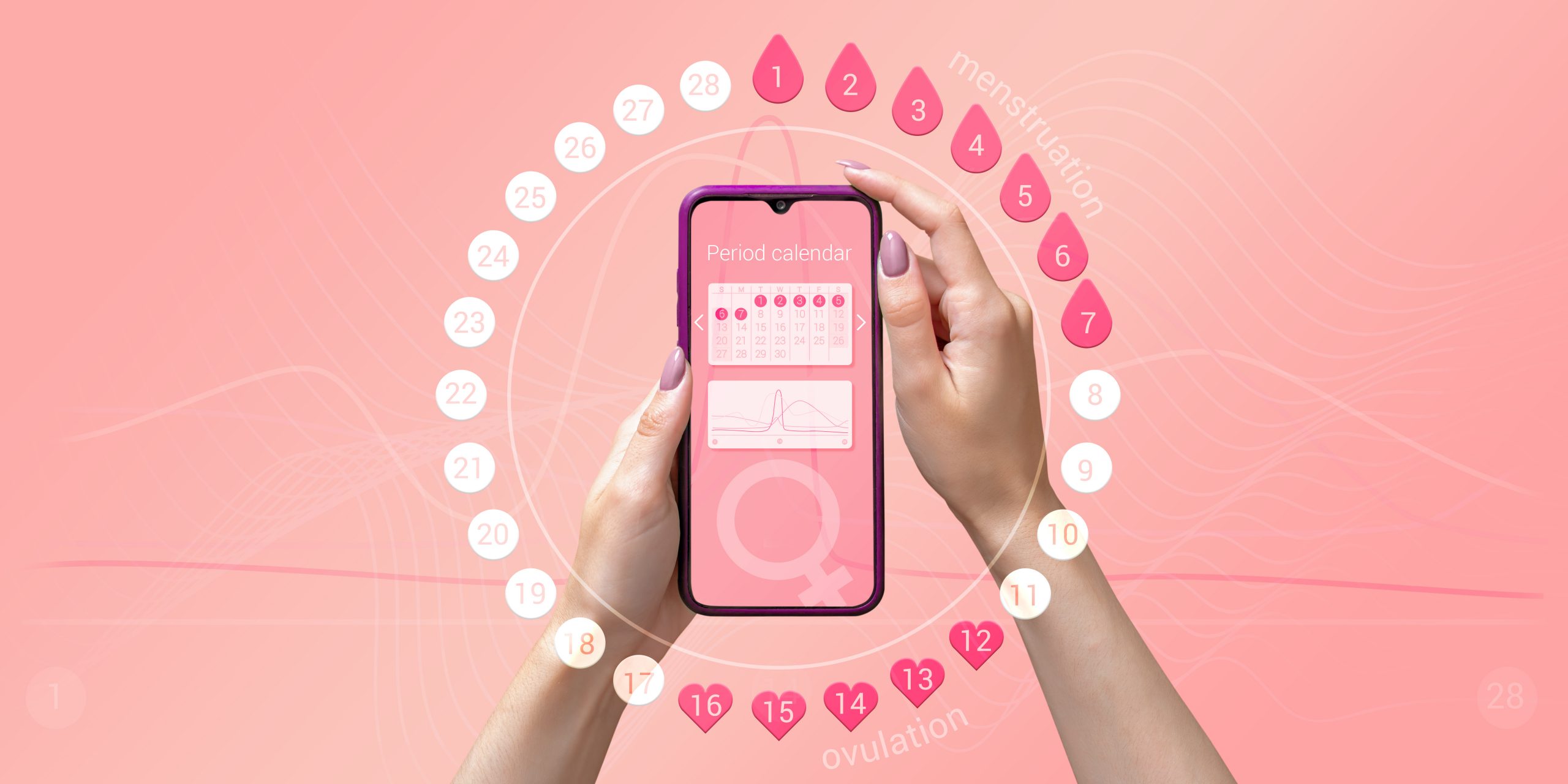
Period tracking apps have become a cornerstone of the femtech revolution, with more than 50 million women worldwide now monitoring their cycle each month. Here’s six top-rated menstrual health apps to simplify your search.
Beyond just predicting your period, these apps can offer valuable insights into your body, help manage symptoms, and even flag potential health concerns.
Tracking your cycle empowers you with knowledge about your ovulation and fertility windows. If you’re planning a pregnancy or practicing birth control, knowing these patterns can be a game-changer.
Many people experience shifts in mood, energy, and physical well-being throughout their cycles, logging these patterns can allow you to anticipate symptoms better and take steps to reduce their impact.
Changes or irregularities in your cycle can also point to underlying health conditions like hormonal imbalances, thyroid issues, or PCOS. While they aren’t a replacement for medical advice, tracking your cycle can alert you to something that’s not quite right.
However, as demand for these products has increased, so has the number of apps coming to market. In 2023, the global menstrual health apps market was valued at USD 1.87 billion and a quick search of the app store brings up dozens of different options. So how do you know which one is right for you?
We’ve curated a list of six top-rated period tracking apps to simplify your search.
Nexus

Nexus isn’t just a cycle tracker, it’s a holistic women’s health coach which includes a cycle tracker but also nutrition, exercise and more to give you a more comprehensive experience when engaging with Nova, your AI coach
Nexus bridges this gap with a female-specific onboarding process offering over 50,000 unique combinations of personalised wellness insights.
With Nova, users also have access to an AI coach that truly knows them, offering adaptive, actionable guidance grounded in science and tailored to each woman’s unique physiology and life stage.
The vision behind Nexus is to give women control over their own health data, using it to improve conversations with healthcare providers, reduce medical gaslighting and accelerate diagnosis times through advocacy and education.
At the heart of Nexus lies a proprietary large language model (LLM) and peer-reviewed health database, built specifically for women.
This architecture blends medical research, clinical guidelines and user data to generate precise recommendations, far surpassing the capabilities of off-the-shelf AI systems.
- Built by medical professionals and scientists. Our team of experts have built, reviewed and tested this product.
- AI-powered health coach Nova, built from scratch to handle the bias and hallucinations for women’s health with AI
- Personalized experience: Nexus adjusts predictions and recommendations to each user’s unique cycle and health characteristics.
- Nexus is free with no upsales or features behind the pay wall.
- 5* reviews in the App Store.
- Your data is private. We don’t share your personal data with the AI model or any 3rd parties.
Nexus is only available on the UK Apple app store currently. You can download the app here or join the international / Android waitlist here. Coming early 2026.
Femia app

Femia is a fertility and pregnancy tracking app with a mission to empower women with knowledge about their bodies, making their fertility journey more personalized and smooth. Femia is supported by cutting-edge AI and provides outstanding support for period and ovulation tracking, helping over 35,000 users achieve their dream of conceiving by mid-2024.
Femia app combines science-backed tools with an intuitive design and nice animations to provide a top-notch experience for all users. With its effortless cycle tracking, the app predicts ovulation and menstrual phases with remarkable precision. Users can log various symptoms like mood changes, vaginal discharge, and physical activity to receive tailored insights that help identify fertile windows or early pregnancy signs.
For those planning a pregnancy, Femia’s Fertility Card highlights key cycle dates directly on the Home screen, simplifying family planning. Since early 2024, Femia has included a Pregnancy Mode to continue journey with those users who got pregnant. It allows moms-to-be to easily monitor their health, track their baby’s growth and development, and receive personalized health tips at every stage of pregnancy.
What sets Femia apart:
- Science-backed and expert-reviewed: All content is curated by OB/GYNs, fertility specialists, psychologists, and fitness experts.
- AI-powered health assistant (Mia): Available 24/7, Mia answers fertility questions and guides users through each cycle or pregnancy phase, based on the user’s logged symptoms, ensuring relevant information is always at hand.
- Personalized experience: Femia adjusts predictions and recommendations to each user’s unique cycle and health characteristics.
- Global trust: With over 1.4 million downloads worldwide, Femia supports users in 10+ languages, with Spanish speakers making up 16% of its base.
- Budget-friendly: Femia brings powerful features at a price that fits your budget. With flexible pricing, you get high-quality performance without the high costs.
- Unwavering data privacy: Femia ensures your personal information is secure, providing peace of mind.
Loved by users across platforms, Femia App is rated 4.9 stars on the App Store and 4.7 stars on the Play Market. Whether you’re tracking your cycle, planning a pregnancy, or monitoring your pregnancy journey, Femia delivers exceptional value and insight every step of the way.
Discover the future of fertility tracking—Try Femia today!
Stardust
Founded and built by women, Stardust is the ultimate cycle-informed health tracker that helps you truly understand your body in a whole new way. Combining period, hormone, and pregnancy tracking with modern science and ancient wisdom like lunar syncing, Stardust offers a complete view of how your cycle shapes your overall well-being. Unlike traditional trackers that focus only on ovulation, Stardust gives you personalized insights that go beyond predictions, diving deeper into every phase of your health journey.
What makes Stardust stand out? It’s the only tracker that lets you share your cycle with friends and follow theirs too, creating a supportive community around your health. Plus, the partner version helps keep your partner in the loop with phase-specific updates, so they can support you through every phase. With integrations like Oura, your everyday data becomes a source of wonder, revealing hidden patterns and connecting the dots between your cycle, sleep, energy, and more.
Stardust is free to download, offering an easy and insightful way to stay in tune with your body, whether you’re tracking your period, planning a pregnancy, or navigating the journey to parenthood. With secure data encryption, Stardust is setting a new standard for body literacy, empowering you to make informed decisions every day.
luna
luna is on a mission to be the go-to digital health and wellbeing companion for teens throughout adolescence, co-piloting with parents along the way.
By taking a holistic approach to adolescent health, luna empowers teens and their families to navigate the tricky terrain of adolescence together, from understanding periods to tackling skin issues, mental health, and friendship struggles.
On the luna app (search ‘we are luna’ on App Stores), teens can track their periods, moods, sleep, and skin, receiving personalised insights and actionable recommendations tailored just for them. They also have a safe space to ask anonymous questions and learn from articles, videos, and quizzes – all verified by a team of doctors and safeguarding experts.
The app also enables parents to gain on-the-pulse insights and advice that’s tailored to the real issues facing teens today. Through a dedicated parenting newsletter, parents receive guidance on everything from social media trends to watch out for, to news stories and how to foster open, meaningful conversations.
With luna, parents and teens don’t just co-exist through the ups and downs of adolescence – they thrive together. The app equips teens with tools to understand their bodies, build confidence, and reach out for support when needed – the first of its kind. At the same time, parents are empowered with resources to guide and support their teens through their formative years.
Other member benefits include exclusive discounts through partnerships with aligned health and wellbeing brands, such as Gymshark, free access to webinars run by adolescent experts, plus so much more.
Whether you’re a parent looking to find out what teens of today are really thinking about, or a teen in need of advice and empowerment, sign up to luna and discover how it can help you.
luna is so much more than a tracker – it’s a female-founded community and an absolute necessity to help both parents and teens thrive through adolescence.
Learn more at weareluna.app or sign up for the parenting newsletter here.
Clue
Clue is a Berlin-based, women-led menstrual and reproductive health app that harnesses the power of full cycle intelligence to help you understand your body’s inner workings, beyond bleeding.
What do people who use Clue love the most? No pink. No myths. And no taboos. Clue is an intuitive, science-based, data-driven cycle health tracker with 100+ different tracking options and a powerful algorithm to help you live a life more in sync with your full cycle – not just to predict your period (although it does that too!).
Loved by over 10 million monthly active users across 190+ countries, and available in 20+ languages, the Clue app intuitively guides you through each cycle, change, and choice. From general cycle health awareness and education to fertility, pregnancy, and even navigating perimenopause.
New in 2024, is Clue’s My Health Record feature which uses de-identified data for good, to help close the diagnosis gap for female health conditions.
You can enter confirmed diagnoses for up to 21 different health conditions including endometriosis, polycystic ovary syndrome (PCOS), premenstrual dysphoric disorder (PMDD), uterine fibroids, bleeding disorders, anxiety disorders, and more. With this feature, the Clue community is collectively building an unprecedented dataset linking confirmed diagnoses and tracked cycle data to enable impactful research on the most commonly misdiagnosed and under-researched female health conditions.
The Clue app is free to download and you can unlock deeper insights and additional personalised modes like Clue Conceive, Clue Pregnancy, and Clue Perimenopause with the premium subscription, Clue Plus.
For more, visit helloclue.com.
![]()
Premom blends period tracking with powerful ovulation and hormone insights—ideal for anyone who wants to get in sync with their body or is actively trying to conceive.
What makes Premom different? It combines detailed hormone tracking with an AI-powered algorithm that learns from your unique data.
By logging ovulation test results (with digital test reading), basal body temperature (BBT), cervical mucus, you help Premom predict your ovulation and period with greater accuracy—even if your cycles are irregular.
The app includes a simple period and ovulation calendar, plus automatic BBT and ovulation charting, making it easy to spot your fertile window, hormone patterns, and cycle shifts—all in one smart, easy-to-read chart.
Developed by the makers of Easy@Home ovulation tests, over 1 million users have gotten pregnant while using the Premom app*.
Not wanting to wait any longer to conceive? FastPass™ to Pregnancy offers a clear, guided plan to help you get pregnant faster—with smarter ovulation predictions, weekly expert check-in videos, and personalised cycle tips, all backed by data.
Need help interpreting your results or deciding what to do next? Fertility AI Pro gives you personalised, real-time responses based on your hormone test results and logged cycle data—so you’re never left guessing.
Premom also includes a Pregnancy Mode, offering weekly development and body change updates, symptom tracking, and expert tips to support you through every trimester.
And with the Predad™ feature, partners can get synced up, too—giving them insights and tips to be more involved and supportive from conception thru pregnancy.
Want even more support?
Premom Premium unlocks advanced reports, webinars led by fertility experts, and extra tools like a PCOS self-assessment to help you feel more informed and empowered throughout your reproductive journey.
The Premom app is free to download, with the optional upgrades for added support.
Learn more at www.premom.com.
*Over 1 million users logged pregnancy or positive pregnancy test results while using the Premom App

Entrepreneur
GenM expands to Australian market

GenM is taking its menopause certification to Australia with TerryWhite Chemmart, Australia’s largest pharmacy network.
The tie-up marks the first time GenM’s MTick menopause-friendly shopping symbol and certification has been rolled out at national scale outside the UK.
It is GenM’s largest international expansion to date.
The MTick certification will be introduced across more than 620 TerryWhite Chemmart pharmacies.
The rollout includes dedicated in-store menopause bays, educational signage, online hubs and product discovery tools.
Heather Jackson, chief executive and co-founder of GenM, said: “Entering the Australian market is a major milestone for GenM and powerful validation of the MTick as a globally scalable and trusted retail category.
“Australia’s national pharmacy network, trusted community healthcare model, and underserved menopausal population make it a strategically significant market for our international growth.
“Partnering with TerryWhite Chemmart allows us to roll out menopause-friendly retail at scale for the first time outside of the UK, demonstrating how the MTick can deliver value for consumers, brands and retailers, and shining a light on how menopause support can improve the wellbeing of communities globally.
“Together, we’re creating an inclusive and accessible category of retail that has the power to transform the lived experience of menopause for over 4 million Australian women.”
Menopause affects more than one billion women worldwide and more than four million in Australia.
GenM research in the UK found 87 per cent of women feel overlooked and underserved by brands and retailers, while 66 per cent struggle to find menopause-friendly products in store and online.
In-store activations will feature products designed to support one or more of the 48 recognised signs of menopause, with pharmacists receiving specialised women’s health training.
By exclusively adopting the MTick, TerryWhite Chemmart becomes the first Australian retailer to formally introduce menopause-friendly certification nationwide.
Krystel Tresillian, pharmacist and general manager of professional practice at TerryWhite Chemmart, said: “Partnering with GenM enables us to respond to a clear and growing customer need.
“Rolling out the MTick across our national network of community pharmacies strengthens our commitment to inclusive healthcare and reinforces our role as a trusted health partner for women at every stage of life.”
Entrepreneur
Matresa raises £315k for maternal health platform

Matresa has raised £315k in pre-seed funding to build a maternal health platform offering personalised screening and support in the UK.
The funding comes as maternal deaths in the UK are at their highest level in more than 20 years, according to the company.
Founded by former nurse Mari-Carmen Sanchez-Morris, Matresa is developing a platform that combines clinical expertise, behavioural science and AI insights to support women through matrescence, the transition from pregnancy into early parenthood.
Sanchez-Morris launched the company after working in a paediatric intensive care unit, where she saw gaps in support for mothers before and after birth.
Sanchez-Morris said: “Poor maternal healthcare isn’t just happening in a vacuum: it affects other areas of healthcare, and stunts women’s career growth, which in turn impacts businesses and the wider economy.
“Tailored care isn’t a privilege – it’s a right. Women and mothers deserve to feel safe and supported, and we need to do more to tackle this crisis.”
One in five women experience maternal mental health disorders or serious complications after childbirth, according to the company.
It says earlier intervention could prevent many of these outcomes, yet gaps in services persist. Preventable maternal health issues are estimated to cost the economy between £13bn and £15bn a year.
The platform also targets employers by offering visibility and insight during maternity leave. Currently, one in three mothers leave the workforce within a year of childbirth, with replacement costs for skilled employees ranging from £30k to £150k.
The pre-seed round was led by SFC Capital.
Edward Stevenson, fund principal at SFC Capital, said: “SFC Capital was delighted to lead this investment round in Matresa.
“We made this investment given the talent and strength of Mari-Carmen and the growing problem that the company is solving. She has demonstrated to us tenacity and determination in all our interactions, all of which suggest to us that she is 100 per cent committed to improving maternal health for women everywhere.”
Matresa is set to launch this summer.
Features
Embryos saved after patients win high court consent case

More than a dozen fertility patients have won a High Court battle to save their embryos, eggs and sperm from destruction after paperwork mistakes.
The ruling followed errors that meant patients did not renew consent to store their biological material within the 10-year window required by law.
In some cases, fertility clinics failed to notify those affected.
Lawyers for 15 groups affected by the errors, including some former cancer patients, asked the court in London to declare it would be lawful for the embryos or cells to remain in storage, despite consent expiring in June 2025.
In an unusual move, the application was unopposed, with no objections from the clinics, the Human Fertilisation and Embryology Authority or the health secretary.
Mrs Justice Morgan ruled that it would be lawful in 14 of the 15 cases for the material to continue to be stored and used. She said laws around human fertilisation and embryology were “unbending” but added that “the rigidity of the scheme is not rigidity for its own sake”.
She continued: “It is surely consent that is important, not consent by an immutable date.
“I find it hard to conclude that parliament intended the possibility of parenthood should be removed by the ticking of a clock, not in the cliched phrase, the ticking of the biological clock, but by the ticking of the clock beyond midnight of the day when existing consent expires, whatever might be the circumstances.”
Under the law, fertility clinics need written consent from clients every 10 years to continue storing biological material.
The rules are intended to prevent cells being kept or used without people’s knowledge or permission.
Because of delays and difficulty accessing fertility treatment during the pandemic, the law allowed a two-year extension, meaning people using the service on 1 July 2020 were granted extra time. Confusion caused by the extension meant some clinic users were not notified when they needed to renew consent, so it lapsed.
In the one case where the judge ruled against the request, the circumstances were legally different.
Morgan said the pair involved had not originally consented to an embryo being stored, but one had been retained accidentally and they now wished to use it.
She said: “There was never, on their case, a consent to renew.
“To be permitted to take advantage of the storage of the embryo which they say ‘contradicted’ their express wishes because the clinic acted on the wrong consent form to change their mind is not in my judgment renewing consent. It is a change of consent.”
-

 Fertility3 weeks ago
Fertility3 weeks agoParents sue IVF clinic after delivering someone else’s baby
-

 Wellness4 weeks ago
Wellness4 weeks agoWomen’s health could unlock US$100bn by 2030
-
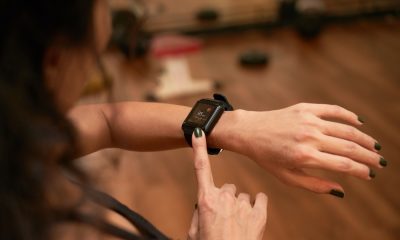
 Entrepreneur1 week ago
Entrepreneur1 week agoUS startup builds wearable hormone tracker
-
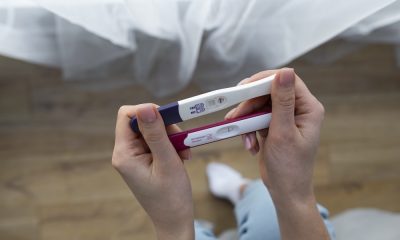
 Insight4 weeks ago
Insight4 weeks agoChina’s birth rate hits record low despite government fertility efforts
-

 Menopause3 weeks ago
Menopause3 weeks agoHRT linked to greater weight loss on tirzepatide
-

 Menopause3 weeks ago
Menopause3 weeks agoFlo Health and Mayo Clinic publish global perimenopause awareness study
-

 Menopause2 weeks ago
Menopause2 weeks agoStudy reveals gap between perimenopause expectations and experience
-
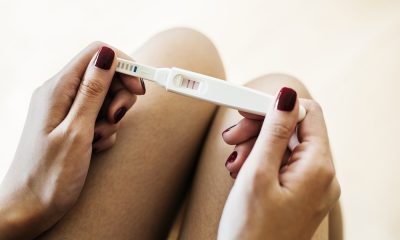
 Fertility1 week ago
Fertility1 week agoFrance urges 29-year-olds to start families now















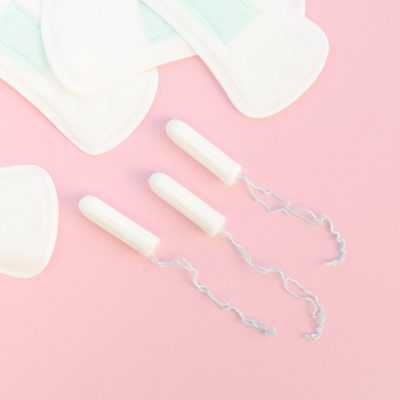




2 Comments